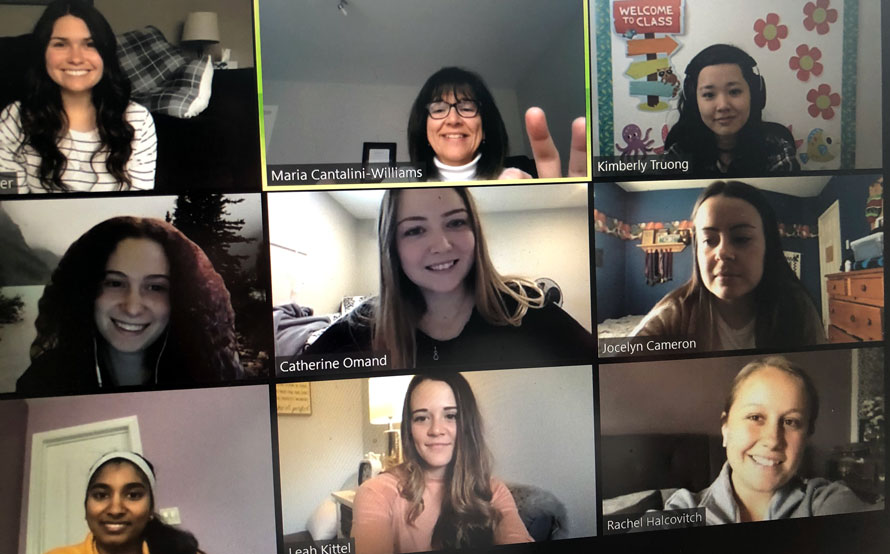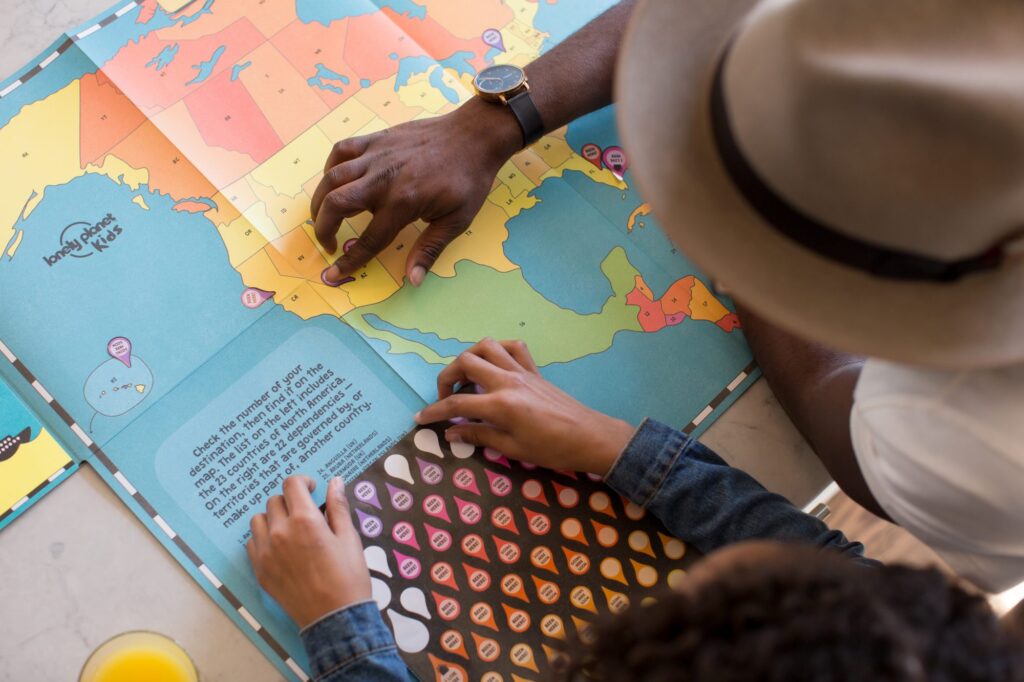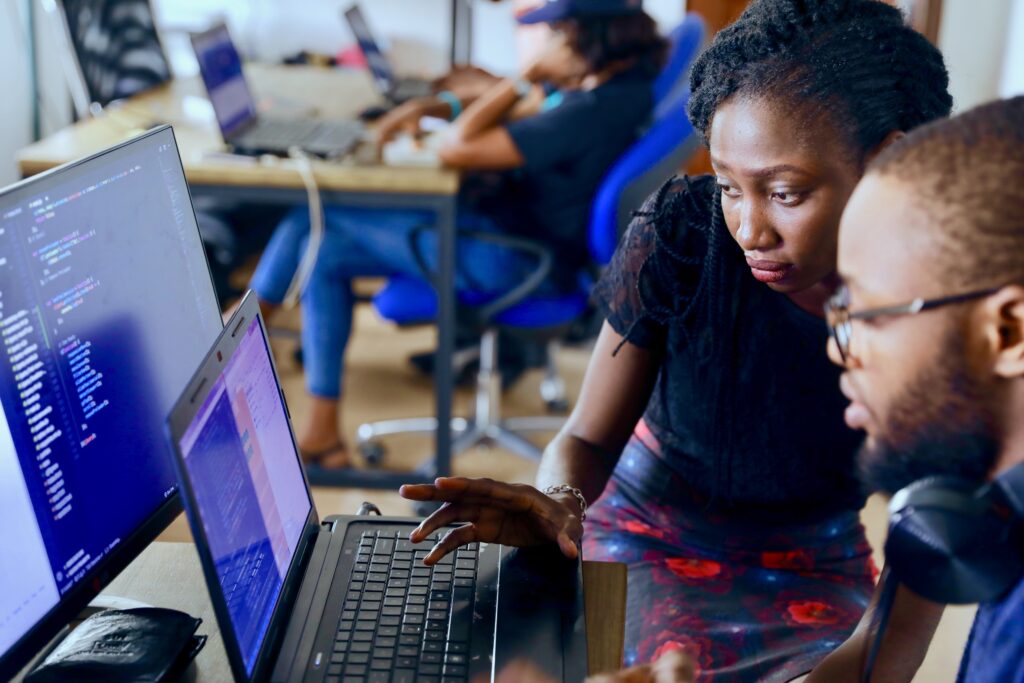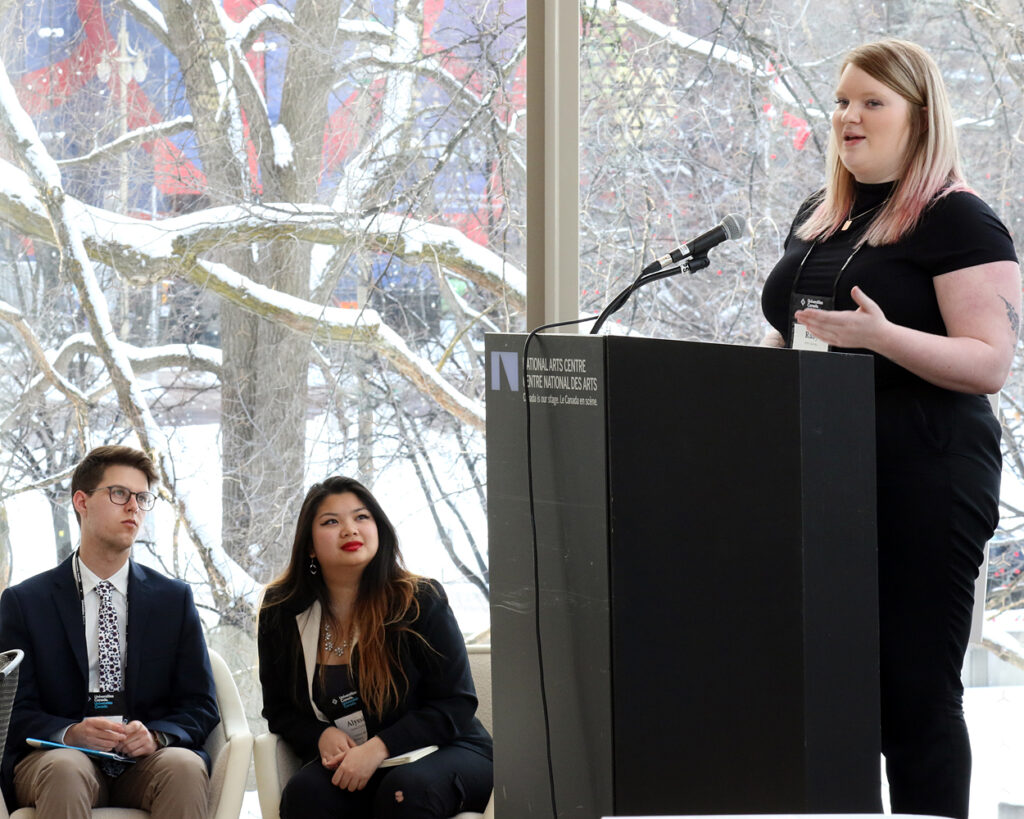A group of eight Bachelor of Education students at Wilfrid Laurier University were planning a trip to Sulmona, Italy to teach English when news hit of school closure across Canada and the world due to Covid-19.
Maria Cantalini-Williams, professor and dean of the Faculty of Education, planned on supervising the students in Italy and when the trip was cancelled, she suggested students take their placements in an entirely new direction.
Since 2016 Maria has worked with the Rideau Hall Foundation’s Innovation program on the Education for Innovation (E4I) Resources, designed to develop innovation skills and mindsets in Canadian students. The free, bilingual E4I resources are designed to help teachers guide learners through the four phases of the Innovation Cycle. Students are inspired to Inquire, Ideate, Incubate and Implement their innovations to make an Impact.
Maria proposed that students build learning modules about innovation that could be used by parents and teachers in Italy, as well as in Canada, for children from Grade 1 to Grade 8. The students were divided into four groups, with each focusing on innovative ideas related to the coronavirus pandemic and either medicine, communications, sports or food. They formed learning modules that highlighted examples of Canadian innovations and asked young learners to think of some innovations themselves, such as an activity designed to help keep people active while at home or new ways to deliver groceries.
“The more we learned about innovation from Maria, the more we saw how relevant it is right now,” says Jocelyn Cameron, a student whose module focused on medical innovations. “It helps children feel connected to what’s going on in the world and feel like they can make a difference. Innovation can be woven into all areas of the curriculum at any time, but it’s particularly relevant right now.”
Cantalini-Williams and her students met regularly using video conferencing software and shared and edited their work online. While there was a learning curve with technology, mutual support and collaboration between the dean and students ensured things went as smoothly as possible.
“This whole experience has really given me a huge appreciation for the teachers who are having to adjust to this new way of teaching, especially those who’ve been teaching for years,” says Catherine Omand, Bachelor of Education student. “It’s so different creating lessons and learning activities online. I hope this learning process will only make me a better, more adaptable teacher in the future.”
Read the full article on at Wilfred Laurier University’s spotlight page.




